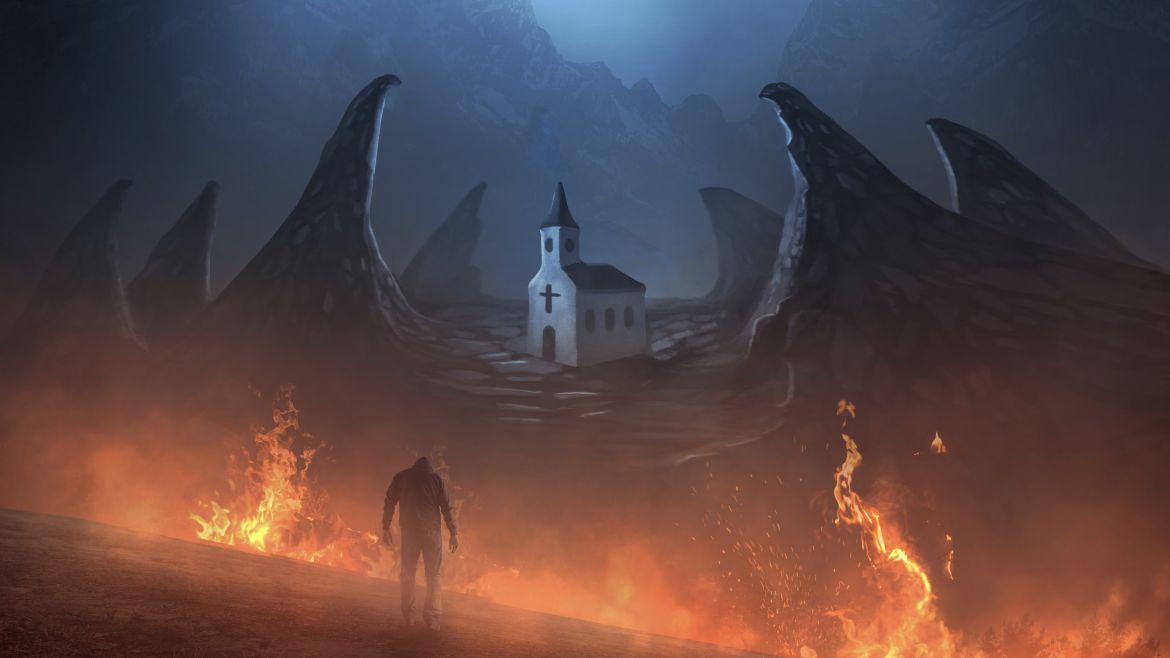As a child, Robert Ingersoll heard a preacher proclaim the doctrine that God subjects sinners to unending torment in hell. Ingersoll decided that if God was like that, then he hated Him. Later he wrote of this belief that it
“makes man an eternal victim and God an eternal fiend. It is the one infinite horror. . . . Below this Christian dogma, savagery cannot go.”
(Martin Gardner, The Whys of a Philosophical Scrivener, p. 300.)
There are substantial moral and logical difficulties in believing in a God who tortures His enemies forever. Like Robert Ingersoll, thousands of thinking men have turned away from such a God. Can this doctrine be reconciled with the Bible’s teaching of a God of love (1 John 4:8) who takes no pleasure in the death of the wicked (Ezekiel 33:11), whose destruction of them is called His “strange” act (Isaiah 28:21,22)?
[Unless otherwise noted, Bible texts in this article are from the Revised Standard Version.]
What does the Bible say?
There is no question that the Bible teaches that the wicked will burn in the fires of hell. However, contrary to popular understanding, both the Old and New Testaments testify that hell will have its time in the future and will burn only until the wicked are reduced to ashes. Note the testimony of Malachi:
For behold, the day comes, burning like an oven, when all the arrogant and all evildoers will be stubble; the day that comes shall burn them up, says the Lord of hosts, so that it will leave them neither root nor branch.
But for you who fear my name the sun of righteousness shall rise, with healing in its wings. You shall go forth leaping like calves from the stall. And you shall tread down the wicked, for they will be ashes under the soles of your feet, on the day when I act, says the Lord of hosts.
(Malachi 4:1-3)
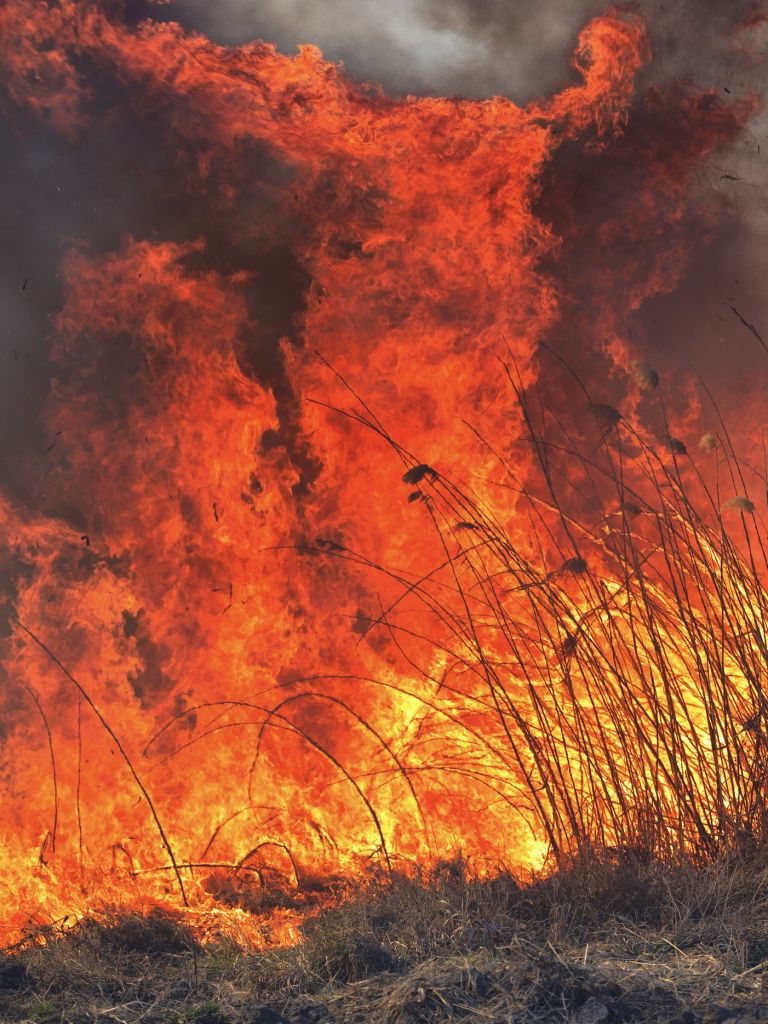
This is not the only passage which teaches that the wicked will be annihilated “root and branch” and turned into ashes. According to Psalms 37:10,20, the wicked will be utterly destroyed and cease to exist; Obadiah 15,16 says they will become as though they had never existed.
And the New Testament makes it clear that Christ explicitly taught the annihilation of the wicked. His statement in Matthew 10:28 that God can destroy both the body and the soul in hell is unequivocal. This text implies the same clear contrast between the first death, which is temporary, and the second, which results in the utter extinction of the soul, confirmed in Revelation 20 (verses 5 and 14, respectively).
It is important to note here that nowhere in Scripture is the soul called eternal or immortal. On the contrary, souls are said to die (Ezekiel 18:4; Leviticus 23:29,30 KJV; Matthew 10:28; Revelation 16:3 KJV).
God alone is immortal!
1 Timothy 6:15-16
Immortality is something for which the righteous seek (Romans 2:7), and which will be bestowed upon them only at the resurrection (1 Corinthians 15:51- 54). Note that inherent immortality should not be confused with eternal life, which belongs by faith to the righteous now (1 John 5:13).
The creation account itself contradicts the common belief that what sets people apart from the animals is that they possess immortal souls. There both animals (Genesis 1:21, 24; 2:19; 9:10,15,16, etc.) and people (Genesis 2:7) are called souls (Hebrews nephesh). The soul is the entire organism (Genesis 2:7), and the term may be used to denote any living creature – whether human or animal.
As to the time and place of hell, Malachi 4:1-3, quoted above, implies that hell is yet future, and that the wicked are to be destroyed on the earth, where the righteous later walk on their ashes. The New Testament is even more explicit – hell occurs at the end of the world.
Note the following three passages:
Matthew 13:40-43
Just as the weeds are gathered and burned with fire, so will it be at the close of the age.
The Son of man will send his angels, and they will gather out of his kingdom all causes of sin and all evil doers, and throw them into the furnace of fire; there men will weep and gnash their teeth.
Then the righteous will shine like the sun in the kingdom of their Father.
2 Thessalonians 1:6-10
God deems it just to repay with affliction those who afflict you, and to grant rest with us to you who are afflicted, when the Lord Jesus is revealed from heaven with his mighty angels in flaming fire, inflicting vengeance upon those who do not know God and upon those who do not obey the gospel of our Lord Jesus.
They shall suffer the punishment of eternal destruction and exclusion from the presence of the Lord and from the glory of his might, when he comes on that day to be glorified in his saints.
2 Peter 3:7-13
The day of the Lord will come like a thief, and then the heavens will pass away with a loud noise, and the elements will be dissolved with fire, and the earth and the works that are upon it will be burned up.
But according to his promise we wait for new heavens and a new earth.
By the same word the heavens and earth that now exist have been stored up for fire, being kept until the day of judgment and destruction of ungodly men. . . .
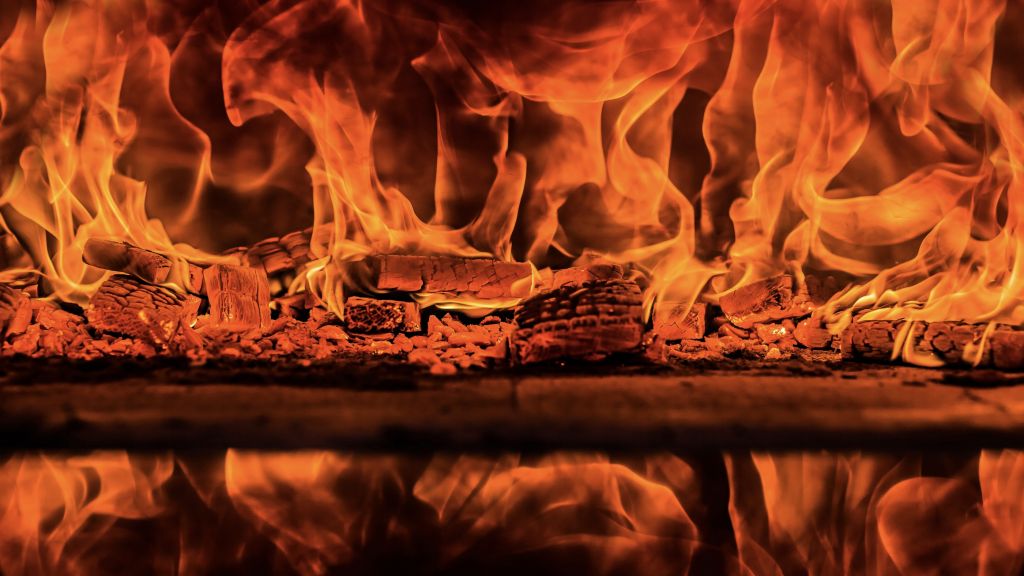
These passages give no hint of any ongoing subterranean fire. Instead, they state that the wicked will be burned at the end of the age. It would make no sense for God to come and pull already burning sinners out of some subterranean holocaust and then “throw them into the furnace of fire” (Matthew 13:42) again.
Note also another thread running through all three of these passages – and Malachi 4 as well. They all speak of a new creation following the fire, which implies that the fire comes to an end.
This scenario/sequence (Second Coming, destruction of the wicked, Re-creation of the earth) occurs again in even more detail in Revelation 20:4-21:1, with the addition of one new element – a millennium that is interposed between the Second Coming and the final punishment of the wicked.
This passage says that, following the final judgment, the wicked and death and hades itself are cast into the lake of fire.
Then the earth is created anew, and “death shall be no more, neither shall there be mourning nor crying nor pain any more, for the former things have passed away” (Revelation 21:4).
It stands to reason that if death, which was cast into the lake of fire, is “no more,” then the same would be true of hades, which met the same fate.
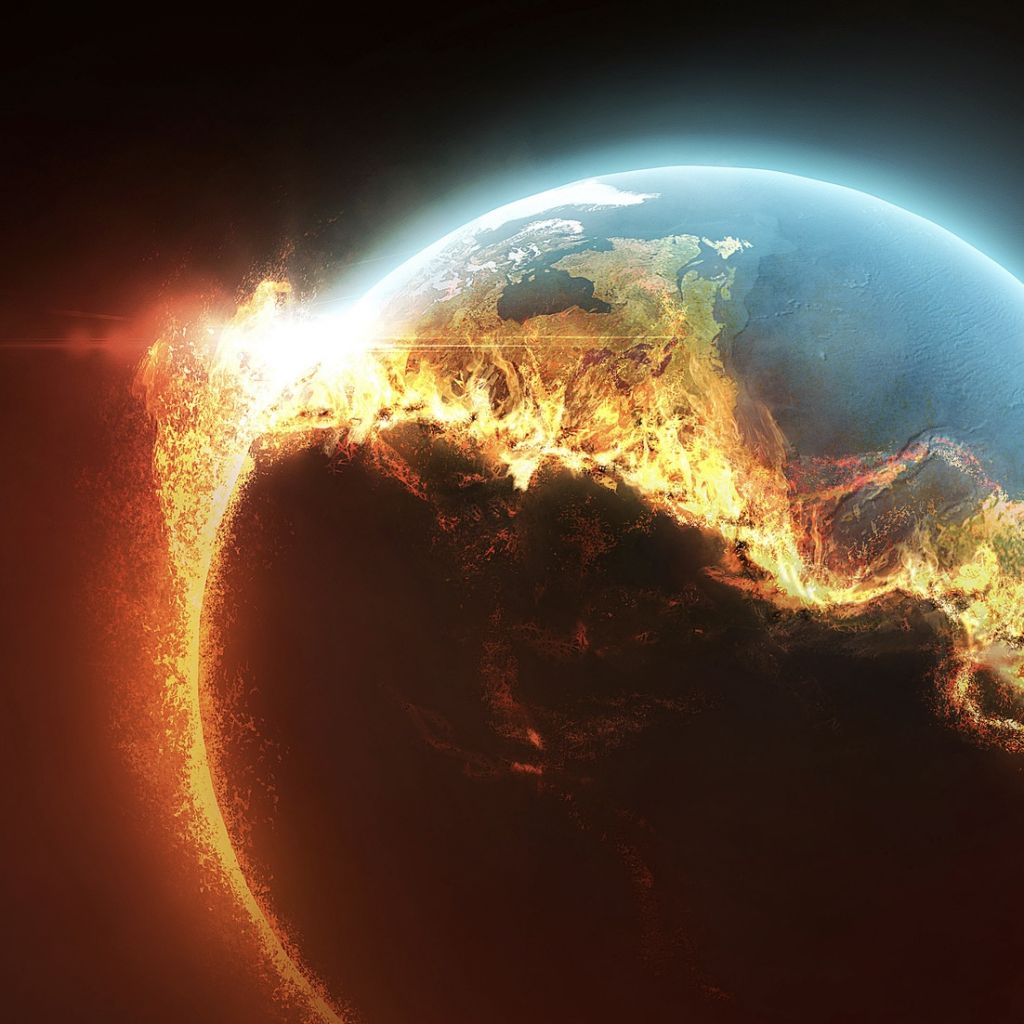
Biblical evidence of an unending hell?
If all of this is true, then why do so many people believe in an eternal hell? The problem is caused in part by certain metaphorical expressions used in Scripture.
Writers in any language often use figures of speech that they do not intend their readers to take literally. For example, in English we use the expressions “he kicked the bucket” or “he bit the dust” to speak metaphorically of death; the expressions have nothing to do with actions of the foot or mouth. A similar sounding expression is used in Genesis 3:14, where the serpent is told to “eat dust.” But snakes do not eat dust. On the basis of ancient Near Eastern parallels, we now know that this expression means “to be humbled.”

It would be wrong to interpret the Hebrew expression “eat dust” literally, or to interpret it by equating it with the English “bite the dust.” Unfortunately, in interpreting some of the biblical passages on the punishment of the wicked, people commonly make this sort of mistake. To be specific, the Hebrew and Greek equivalents of the English forever, eternal, and everlasting do not always imply something that never ends.
Several New Testament passages speak of eternal or everlasting fire:
Then he [Christ] will say to those at his left hand, ‘Depart from me, you cursed, into the eternal fire prepared for the devil and his angels.’ . . . And they will go away into eternal punishment, but the righteous into eternal life” (Matthew 25:41-46; compare 18:8).
The Greek word translated eternal here often does convey the idea of unending duration. But sometimes this word refers not to the process but to the result. And it is qualitative, not quantitative, in meaning.
For example,
- “eternal salvation” (Hebrews 5:9) does not mean endless saving, and
- “eternal judgment” (Hebrews 6:2) does not mean endless judging; the process comes to an end, but the result is eternal.
- Nor does the term an “eternal sin” (Mark 3:29) designate endless sinning, but rather a sin with eternal consequences.
- Similarly, “eternal punishment” (Matthew 25:46) does not mean eternal punishing;
- nor does “eternal destruction” (2 Thessalonians 1:9) mean eternal destroying. It is not the act but the result that is unending.
In each of the above cases, the process of saving, judging, sinning, punishing, and destroying comes to an end, but the result – the salvation, the punishment – is eternal in that it will never be undone; the damned will never come into existence again.
It is true, as advocates of eternal punishment have maintained, that the “eternal punishment” of Matthew 25:46 must last as long as the “eternal life” mentioned in the same sentence; but this is true of the result, not the process. The wicked will be dead as long as the righteous are alive.
The expression “eternal fire” should be understood in the same way. It does not mean eternal burning, but a fire the results of which are eternal. The way this expression is used in Jude demonstrates this.
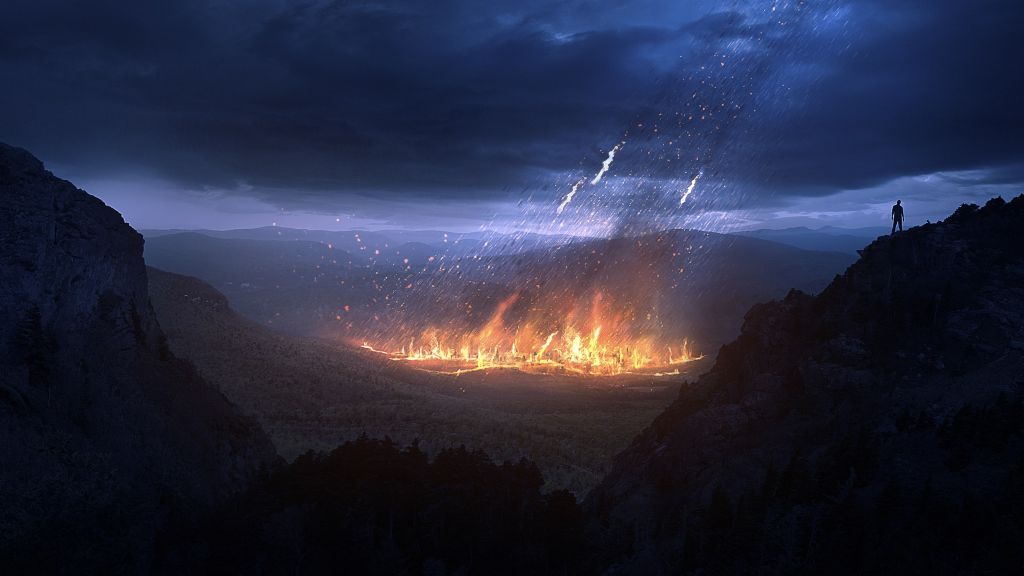
According to Jude 7, Sodom and Gomorrah were burned with “eternal fire.” In the parallel verse in 2 Peter 2:6, this fire is said to have reduced these cities to ashes. And it is said to be an example of what is going to happen to the wicked. But Sodom is not burning now. The fire was eternal because its results are eternal, not because it never stopped burning. These two verses imply that the eternal fire that will burn the wicked will reduce them to ashes and then go out.
Another misunderstood expression is “unquenchable fire” (Matthew 3:12; Mark 9:43). This does not mean fire that never goes out.
- In Jeremiah 7:20 God threatened to pour out His anger upon Jerusalem: “it will burn and not be quenched.”
- According to 2 Chronicles 36:19,21, the threat was fulfilled when the Babylonians “burned the house of God.”
- This fire reduced the gates of Jerusalem to ashes (Nehemiah 2:3), and then, of course, went out.
Unquenchable fire, then, means fire that cannot be quenched, or put out, until it goes out by itself after there is nothing more to bum. It does not mean fire that burns forever.
An overstretched parable
The common idea that hell is a place – perhaps somewhere beneath the surface of the earth – where the dead are now being tortured finds alleged support in only one passage of Scripture. The parable of the rich man and Lazarus (Luke 16:19-31) is one of a group of parables on the use of money in chapters 15 and 16 of Luke. The fact that this story is not explicitly called a parable is not significant, as only the first of the five parables in this group is so designated (Luke 15:3).
One cannot base a theological belief on the incidental details of a parable. For example, the parable of the talking plants (Judges 9:8-15) is not intended to teach that plants can talk. And while, in the parable of the dishonest steward that also appears in Luke 16, “the master commended the unjust steward” (Luke 16:8), we should not come to the conclusion that Christians should be dishonest.
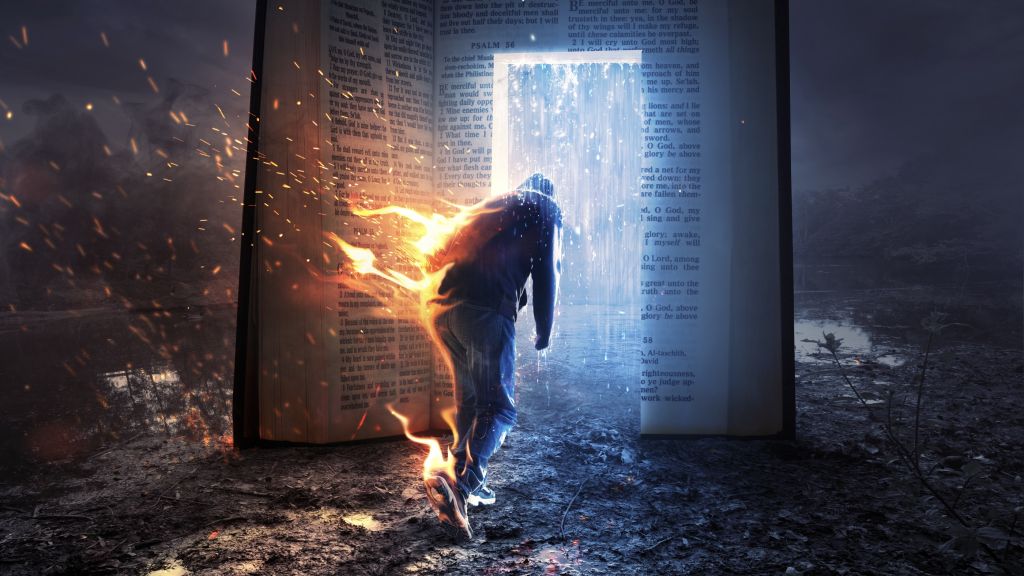
The essential elements of the story of the rich man and Lazarus were already part of popular Jewish folklore in the time of Christ; they can be found in contemporary Jewish literature. Christ simply borrowed the story to make a point about how the use of money affects our destiny. His subject was not the state of the damned, but stewardship.
Biblical expressions such as “in the heart of the earth” (Matthew 12:40) and “into the lower parts of the earth” (Ephesians 4:9), where Jesus is said to have gone after His crucifixion, are simply a reference to the grave and not some point deep inside the globe. A similar expression is used in Jonah 2:2. There Jonah, in the fish’s belly, claims to be in “the belly of hell (KJV).”
But what about Revelation 14:10,11, which describes the punishment of the wicked in the most graphic terms?
He shall be tormented with fire and sulphur in the presence of the holy angels and in the presence of the Lamb. And the smoke of their torment goes up forever and ever; and they have no rest, day or night.
Surely, here the Bible clearly teaches the unending torture of the wicked!

We must let the Bible define its own terms. Like the words eternal and everlasting, forever does not necessarily mean absolute endlessness. In fact, it tends to have the meaning “indefinitely.” The sprinkling of blood at the Passover is said to be “forever” (Exodus 12:24). And the same concept is used concerning the Aaronic priesthood (Exodus 29:9; 40:15; Leviticus 3:17), Caleb’s inheritance (Joshua 14:9), Solomon’s Temple (1 Kings 8:12,13), and Gehazi’s leprosy (2 Kings 5:27). Yet none of these things exist today.
Forever can mean…
- “as long as life lasts” (see 1 Samuel 1:22,28; Exodus 21:6).
- It can refer to a very short period (Jonah 2:6).
- It can even mean “as long as necessary.” Speaking to rebellious Israel, Jeremiah quotes God as saying, “I will make you serve your enemies in a land which you do not know, for in my anger a fire is kindled which shall burn forever” (Jeremiah 17:4). However, Jeremiah 23:20 makes clear that “forever” meant “until he [God] has executed and accomplished the intents of his mind.”
- And Ezekiel 5:13 indicates that God’s anger will spend itself when its purposes have been satisfied.
What is said of metaphorical fire is evidently true of literal hell: it will burn “forever” that is, as long as necessary, until the purpose is accomplished.
However, we still have not solved the problem of Revelation 14:11, which does not merely say “forever,” but “forever and ever,” and adds that “they have no rest, day or night.” The book of Isaiah holds the key to the meaning of this passage. John’s words reflect Isaiah’s prophecy (Isaiah 34:9,10) concerning Edom:
The streams of Edom shall be turned into pitch, and her soil into brimstone; her land shall become burning pitch. Night and day it shall not be quenched; its smoke shall go up forever. From generation to generation it shall lie waste; none shall pass through it forever and ever. (Isaiah 34:9-10)
Isaiah 34:5 to 35:10 pictures the destruction by fire and then the restoration of the land of Edom. Although Isaiah 34:10 seems to indicate that the fire in Edom will burn forever, the following verses indicate that wild plants will grow there and wild animals will live there! Obviously, the fire must eventually die out.

But there is more. The last part of verse 10 says that “forever and ever” no one will pass through the land. And verse 17 says that the animals will possess the land “forever” that is, the land will be perpetually uninhabited by human beings. Yet the following chapter (Isaiah 35) describes the restoration of this same land, and its repopulation by the righteous! Conditions will then be so altered that this once-deserted “haunt of jackals” (Isaiah 34:13; KJV, “habitation of dragons”) will someday become a garden where no jackals dwell (Isaiah 35:7,9).
This passage describes the same pattern (“eternal” fire followed by restoration and repopulation) that we have already detected above. It is clear that here the expression “forever and ever” means only a limited period of time.
We need not understand these expressions any more literally in Revelation 14:11 than we do in Isaiah 34-35 particularly when such highly figurative imagery is the trademark of the book of Revelation.
Where worms never die
Isaiah 66:24 uses similar metaphorical language of the destruction of the wicked. There was a garbage dump in a valley outside Jerusalem where the worms that fed on abandoned carcasses never seemed to disappear, and the fires were always burning.
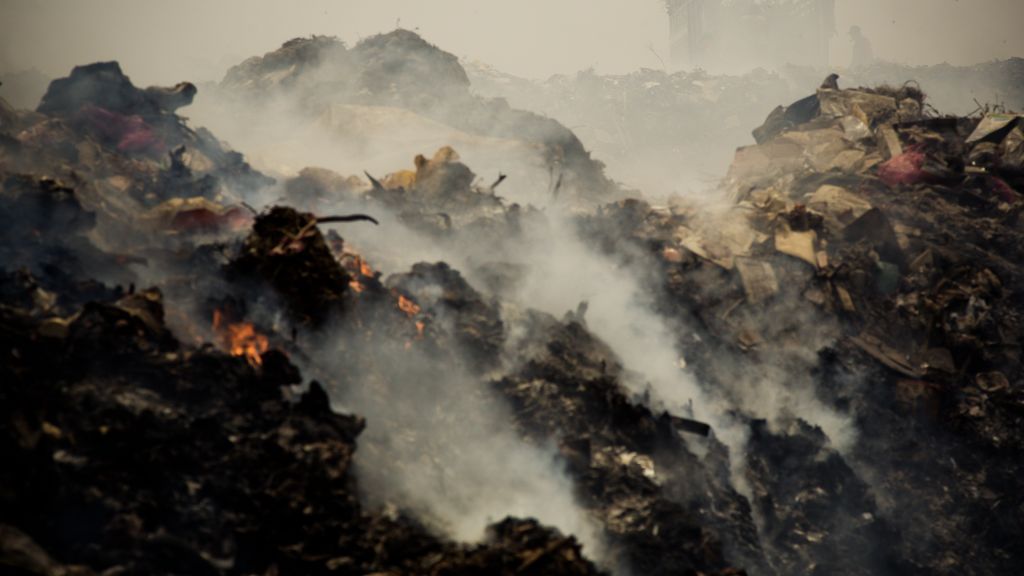
This valley, the Valley of Hinnom, became a symbol of what would happen to the wicked. (The Greek word for hell, gehenna, is a transliteration of the Hebrew for Valley of Hinnom.)
The worms Isaiah refers to are literal maggots that feed on dead flesh (see Job 17:14; 21:26; 24:19-20; Isaiah 14:11; 51:8). Nowhere in the Bible does the word worm mean “soul.” Like the “unquenchable” fire, the worms will never die until their task is finished. Earlier in the chapter Isaiah had written:
For behold, the Lord will come in fire, and his chariots like the stormwind, to render his anger in fury, and his rebuke with flames of fire. For by fire will the Lord execute judgment, and by his sword, upon all flesh; and those slain by the Lord shall be many. Those . . . shall come to an end together, says the Lord.” (Isaiah 66:15-17)
We must consider one other text. 2 Peter 2:9 may be translated to say either that the wicked are to be held for punishment unto the day of judgment or that they are to be held while being punished. The analogy of 1 Peter 1:4-5; 2 Peter 2:4; 3:7; and Jude 6 strongly supports the rendering “held for punishment,” as opposed to the rendering that implies the punishment is going on now. At any rate, a text whose translation is disputed should not be used to support a disputed doctrine.
But if hell is not forever, then how long will it burn?
We cannot say. Jesus warned those who failed to make things right with the judge that they would be jailed and would “never get out till you have paid the last penny” (Matthew 5:26). The unforgiving servant, whose own forgiveness was revoked, was delivered to the “torturers, till he should pay all his debt” as an example of what would happen to others equally ungenerous (Matthew 18:34, margin).
These warnings imply that there is a limit to the punishment process, a time when the debt would be paid.

This appeals to our sense of justice. It is not right that a child who should happen to die without being saved should suffer as long as Adolf Hitler. The fact that the degree of punishment differs, depending on how much of truth a person has known (Luke 12:47-48), implies the same thing. This would not be possible if all were punished forever.
Moreover, if hell were burning now, then the length of punishment would be greater for those who lived and died in earlier ages (and knew less of God’s truth) than for those who lived later (and knew more) just the opposite of what Luke 12 teaches. Cain, who murdered one man, would have suffered for thousands of years longer in hell than Adolf Hitler, who was responsible for the death of millions. How could this be fair?
A long tradition in the Christian church regards the words of Ezekiel 28:14-19 as a description of Satan. If this is correct, then this passage, using the “prophetic past tense,” teaches that the devil will someday be utterly destroyed by fire (verses 18, 19).
It is unlikely that God would bring the devil’s sufferings to an end, yet allow those whom he deceived to suffer forever.
Conclusion
Francis Bacon said,
It were better to have no opinion of God at all than such an opinion as is unworthy of him. For the one is unbelief, the other is contumely. . . .
(Francis Bacon, “Superstition,” cited in Gardner, p. 300.)
He continued, “Plutarch saith well to that purpose: ‘Surely,’ saith he, ‘I had rather a great deal men should say there was no such a man at all as Plutarch, than they should say there was one Plutarch that would eat his children as soon as they were born.'”
Reacting to the concept that God would subject His enemies to unending torture in hell, many have turned from God. But the Bible makes clear that this is a misunderstanding.
Its picture of God as just, and more than that, as a loving Father, is consistent. Its portrayal of His merciful dealings with even those who crucified His Son confirms that He is a God worth knowing and serving.
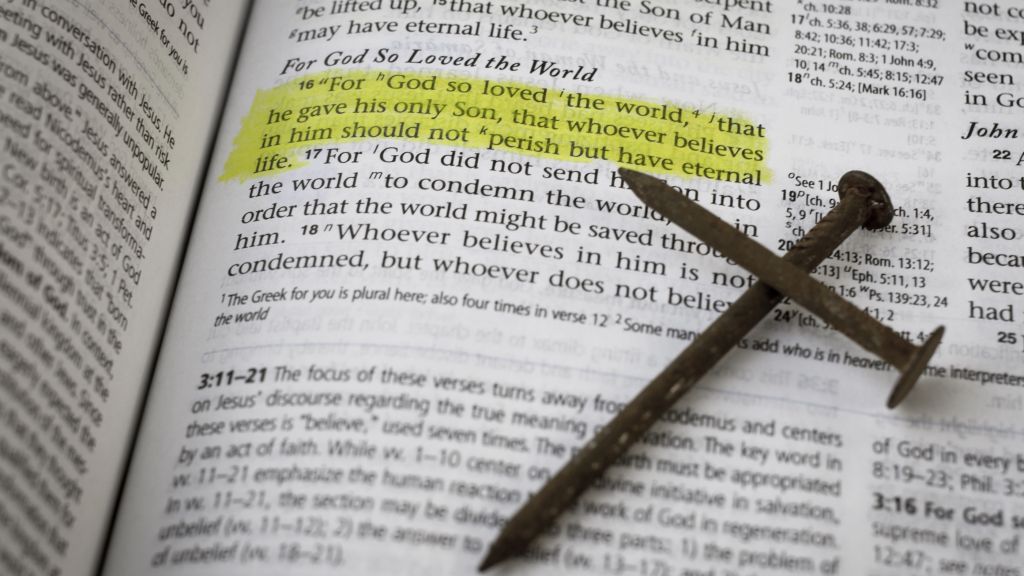
Article written by author and pastor Tim Crosby, D.Min, a contributor to Voice of Prophecy. The article was first published in Ministry magazine.


